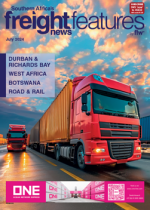Greater collaboration between the private and public sectors unlocked significant value, optimised supply chain performance, and enhanced the competitiveness of rail logistics, according to Transnet Freight Rail (TFR) chief executive Russell Baatjies. Speaking at a recent Transport Forum, Baatjies emphasised the vital role of Transnet and the railways in supporting South Africa’s transport-intensive economy.Baatjies stated that freight rail's potential to capitalise on rail demand and increase volumes, especially in general freight, had been hampered by underinvestment in network rehabilitation. TFR’s ‘Reinvent for Growth’ strategy’ highlighted that theft, vandalism, sabotage of infrastructure and rolling stock, and disputes over locomotive contracts had worsened the situation.According to Baatjies, the strategy was crucial for the railways, as it aimed to turn the business around. "The strategy focuses on addressing operational challenges and improving our performance in three key areas: fixing and optimising the business, transforming the business, and growing the business.”He noted that the private sector played a crucial role in this turnaround. "We engage the private sector more regularly now to find solutions that could improve logistics in South Africa and enhance the country's global competitiveness," he said.He explained that a two-pronged approach was under way to fix and transform the railways. "On one hand, we are working on recovering volumes from key operations. On the other, we are focused on rail reform, investment in the rail sector and rejuvenation. This includes establishing an independent infrastructure manager with a regulated asset base and providing access for private train-operating companies.”According to Baatjies, the goal is to shift from an inward-looking approach focused on corridors to a more outward-looking approach that structures rail alongside specific industries such as iron ore, manganese, steel, cement, coal, and agriculture. "We believe this is a far more sustainable approach as it aligns better with customers and allows us to serve them more efficiently,” he said.To grow the business, plans are being made to enhance delivery in several key segments while also leveraging private-sector partnerships. At present, transport accounts for more than 55% of the total logistics costs in the country. With roads carrying more than 85% of the total freight market share and dominating the general freight and breakbulk sectors, significant gains can be made by reforming rail.

